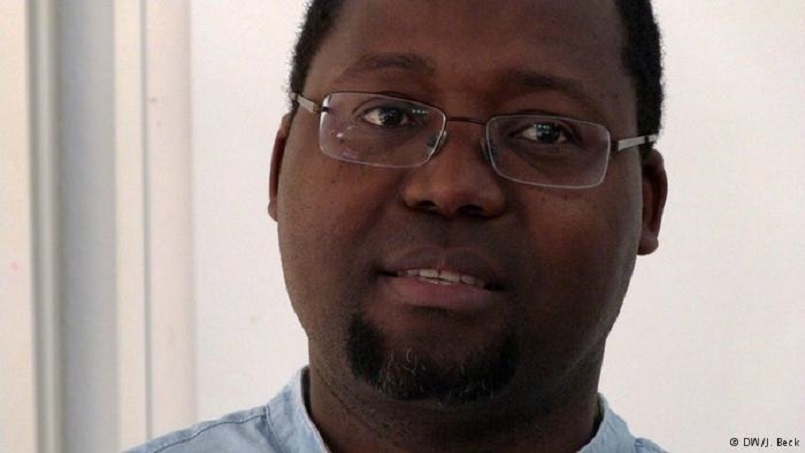Mozambique and European Union sign Strategic Digital Partnership in Brussels
Mozambique: Better approach on debt calls for greater appreciation of the context, says Elísio Macamo

In file CoM: Elíso Macamo
Elísio Macamo, a Mozambican sociologist and professor at the Centre for African Studies at the University of Basel, has argued that it is necessary to rethink the country’s political system as well as the quality of debate in the public sphere.
Schweiz Basel Elísio Macamo (DW / N. Issufo)
At an event entitled “The new debt crisis: structural adjustment, loans, corruption and profits – the case of Mozambique”, organised in the context of the economic crisis facing Mozambique, Macamo said people tended to discuss issues too emotionally.
We talked to him about the social dimension of the crisis.
DW Africa: How do you analyse Mozambicans’ perception of the crisis in Mozambique and the way they face it?
Elísio Macamo (MS): I find it difficult to talk about the perception of Mozambicans because people have different levels of access to information and also different abilities to perceive. My perception is that there is a basic difficulty, first, in realising in what context it is that Mozambique should act as a nation and how an economy acts, and what kind of constraints are faced by any government in that context.
And then there is a widespread perception by people that an irresponsible government and that it made irresponsible decisions motivated by personal interests and corruption, and that we have the problems that we have today precisely because of this irresponsibility. That is a legitimate appreciation; people feel the effects of the economic situation.
In my opinion, the economic situation in which we find ourselves in does not necessarily have to do with hidden debts. It has a lot to do with the structure of our economy, with the global structure and context within which governments have to make decisions. And I think that a better approach to this problem would have to involve a greater appreciation of the context within which our country has to act. But we cannot expect this from people; they are far more concerned with finding an immediate and plausible explanation for the situation they face.
DW Africa: Are there any interesting phenomena that you think highlight the crisis as Mozambicans perceive it?
EM: Yes, there are. For example, I think there is a great difficulty in our country realising what kind of country we live in. There is always that impression that our country is normal, that it only has a few problems and if we solve these all would be well. Of course, there are different perceptions according to the person’s position in society, so there is great difficulty in realising that Mozambique is a poor country, and today this is a big problem in the world. As long as people do not realise this, they are going to have a hard time seeing why they have to consent to sacrifices, and what kind of sacrifices they have to consent to. And this also applies to the government itself, which sometimes makes decisions that are very difficult to communicate to the people.
DW Africa: They say that it is from crisis that innovation arises and creativity increases. Do you see this as being the case of Mozambique?
Schweiz Basel Elísio Macamo (DW / N. Issufo)
EM: I will say something very controversial: that I think there was a moment during Guebuza’s term when there was a realisation that the crisis could be an opportunity. But the shot backfired. At the moment I do not see this; I see only the concern in managing the situation as best we can.
DW Africa: The government has been harshly criticised for the crisis Mozambique is undergoing. Can you see any positive aspect in the executive’s management of the matter?
EM: I think the positive aspect is more in the calm way President Nyusi has tried to deal with several difficult dossiers like hidden debts, political-military instability and in relation with donors.
DW Africa: And what lessons can be drawn from this crisis situation?
EM: I think we need to rethink our political system and the quality of debate in the public sphere. I think there is a big deficit at this level. People approach these issues in a very emotional way and rarely seem concerned to get to the bottom of the issues. The example of luxury cars is paradigmatic, because the issue is not the purchase of cars, but a political system that is not capable of making decisions that make sense from the social point of view. And while we’re in a situation like that, it’s going to be bad.













Leave a Reply
Be the First to Comment!
You must be logged in to post a comment.
You must be logged in to post a comment.